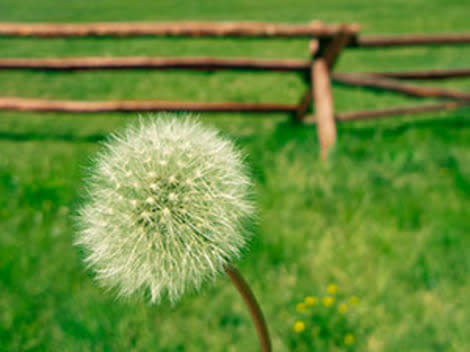6 Things You Didn’t Know About Seasonal Allergies

More than 40 million Americans will be sneezing and wheezing this spring from seasonal allergies, according to the American College of Allergy, Asthma and Immunology. But few people really understand why. Here, the fact and fiction about seasonal allergies.
1. Pollen is a male organism.
Plants don't reproduce the same way humans do. "[Plant] sperm can only swim so far and disperse so far," says Joseph Armstrong, professor of botany at Illinois State University. This explains why seed plants distribute the whole male organism - through the air. That male organism, housed inside a tiny reproductive body called a spore, makes sperm when it lands in the right environment. Don't worry, it's not doing it inside your nose. But the foreign protein is what irritates your nasal membranes, says Armstrong.
Related:A Longer Allergy Season Is Nothing to Sneeze At
2. Don't blame the roses.
"People always think of flowers as causing allergies. That's not the case," says David osenstreich, MD, director of the allergy and immunology division at Montefiore Medical Center in New York City. "The plants that cause allergies have very nondescript flowers - they're trees and weeds. Those plants rely on the wind to pollinate each other. Fancy-looking flower pollens are big, heavy, and sticky so they can stick to the legs of bees. They don't blow around, and they rarely cause allergies."
3. A mild winter may prolong your allergies.
Sorry. "It extends the span of the season," says Baiju Malde, MD, a Chicago allergist who teaches at Northwestern University Feinberg School of Medicine. A mild winter means trees release pollen earlier.
Related:5 Cleaning Tips for Allergy Relief
4. Thank the rainfall (temporarily).
Pollen cannot easily travel through the air when it's wet outside, so the rain gives you a brief reprieve. "Normally, the day after a rain storm, the pollen counts will be right back up," says Rosenstreich. But rain has a downside: It makes those stuffy nose-inducing plants thrive and grow bigger! If you're generally prone to allergies, you shouldn't necessarily move to damp Seattle, where mold can be a problem.
5. You'll often feel worse in the morning.
Pollen counts are typically higher then. Most plants release pollen in the morning, after the dew has dried and before the midday breeze, says Mark Holbreich, MD, an Indianapolis allergist who is a fellow of the American Academy of Asthma & Immunology. If you want to avoid pollen, don't rush outside. (He notes that some grasses pollinate in the late afternoon or early evening, and some trees do it throughout the day.) If you're a runner, Rosenstreich recommends exercising in the evening instead.
Related:What's Making You Sneeze?
6. Living in a big city may help.
"You're probably less likely to be bothered in the summer because you don't have pasture grasses around," says Armstrong. "Pollen can travel 200 miles in the air," says Holbreich. Fortunately, only 20 percent of plants - weeds, grasses, and trees such as oaks, maples, elms - cause allergies by pollinating through the air, he says.
- By Karen Springen
More from Good Housekeeping:
